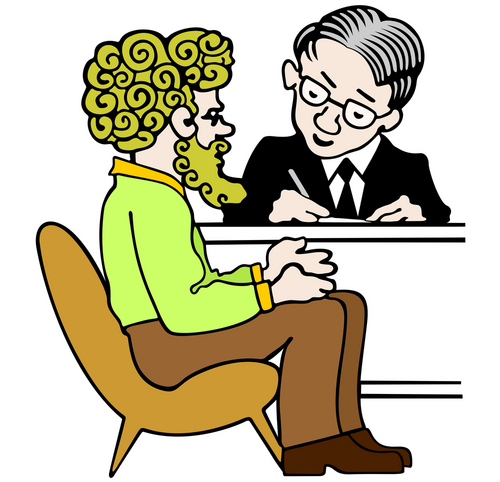 Originally published in The Champion, November, 2011
Originally published in The Champion, November, 2011
Basics of a Client Interview
A lawyer can meet a client in many ways, including a referral by court appointment or in the waiting room of the lawyer’s office. For purposes of this article, let’s assume this is the lawyer’s first discussion with a potential client who is unfamiliar with the criminal justice system. This is a 360° interview — the lawyer and the client are evaluating each another. The client is deciding not only whether to retain the lawyer, but more importantly, whether he trusts the lawyer. Ultimately, will the client accept the lawyer’s advice?
The lawyer must not forget obvious etiquette. Desiring to make a good impression, the lawyer should dress the part. The lawyer should dress as if he is the one being interviewed, not the one asking the questions. He should wear clothes that he would put on if he were interviewing for a job.
Information Available Before the Client Interview
It is not unusual for the attorney to have very limited information prior to the interview. The attorney may have only an indictment, a criminal complaint, or bail paperwork. If lucky, she might have an affidavit or police report related to the charging documents. She should print out the criminal codes and statutes in advance since she will need to review the elements and definitions of each charged crime with the client. She should explain Rule 16, or the state equivalent, regarding the timing of discovery and the government’s disclosure obligations. Counsel should let the client know the procedural reasons for the lack of documentation at this stage and when she expects to receive more information. Depending on the charges, counsel may want to provide the client with a copy of the U.S.C.C. Sentencing Table or similar state guidelines.
Confident Lawyers Don’t Brag
Too many lawyers dominate the interview and, in doing so, fail to listen to the client. The lawyer’s job is to listen and advise, not overwhelm the client with big words or the salesmanship of convincing the client to hire the lawyer. Counsel will get to that crucial point with the client by establishing trust, not by barking like a chained junkyard dog looking for a fight. Self-aggrandizement is not necessary. Confidence is crucial, but bragging is for those lawyers who lack it. If counsel needs to tell the client he is a great lawyer, then counsel is not a great lawyer.
 Chest-pounding and aggressive posturing served Tarzan well in the jungle, but those same traits are not valuable while interviewing the client. Conversely, if the attorney believes the client will hire him based on his ability to be loud and profane, the attorney should consider a different career. He is a lawyer, not a late-night comedian or talk show host.
Chest-pounding and aggressive posturing served Tarzan well in the jungle, but those same traits are not valuable while interviewing the client. Conversely, if the attorney believes the client will hire him based on his ability to be loud and profane, the attorney should consider a different career. He is a lawyer, not a late-night comedian or talk show host.
Counsel should explain the basic principles of the attorney-client privilege. This is counsel’s opportunity to let the client know counsel is a zealous advocate in the client’s corner. The client must know that the attorney will not disclose information learned through privileged conversations. After talking about privilege, the client will likely be more candid about the matter at hand.
Defense counsel should not suggest he has a personal relationship with the judge or government lawyers. A professional relationship and experience, if any, with the court or prosecutor, are all that matters and prevents any ethical concerns. If counsel does not know the judge or the prosecutor, before the interview he should contact somebody that might know them.
My entire article was published on 11/11 issue of The Champion by the National Association of Criminal Defense Lawyers.

